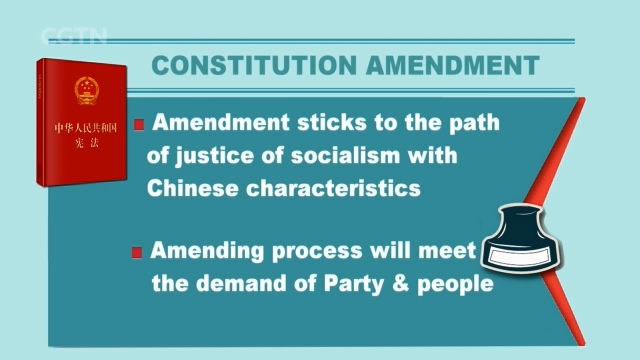
13:59, 19-Jan-2018
CPC Session: China's Constitution principles and its amendments

The members of the Political Bureau have already been briefed about the feedback on the CPC Central Committee's suggestion to amend some parts of the constitution. So what do we know so far about the amendment proposals and what's been changed before? let's take a look.
Amendments to the Constitution are to be proposed by the Standing Committee of the National People's Congress or by more than one-fifth of the deputies to the National People's Congress. And adopted by the vote of more than two-thirds of the deputies to the congress. The NPC exercises its powers to amend and supervise the enforcement of the Constitution. The constitution amending process must follow such principles as upholding the CPC's leadership, sticking to the path of justice of socialism with Chinese characteristics and adhering to correct political direction. The statement also says the amendment must focus on some parts rather than an overhaul of the Constitution to make sure that it could not only meet the demands of the Party and people, but also follow the rules of the Constitution and law department, so as to keep the Constitution's continuity, stability and authority. The Constitution's last amendment was made in 2004 to include guarantees regarding private property and human rights. In 1999, the amendment was made to include a new paragraph, reading "The People's Republic of China governs the country according to law and makes it a socialist country under rule of law." The 1993 amendment included adding a new sentence to the Preamble, that "The system of the multi-party cooperation and political consultation led by the Communist Party of China will exist and develop for a long time to come." While in 1988, the Constitution was revised to permit the private sector of the economy to exist and develop within the limits prescribed by law.

SITEMAP
Copyright © 2018 CGTN. Beijing ICP prepared NO.16065310-3
Copyright © 2018 CGTN. Beijing ICP prepared NO.16065310-3